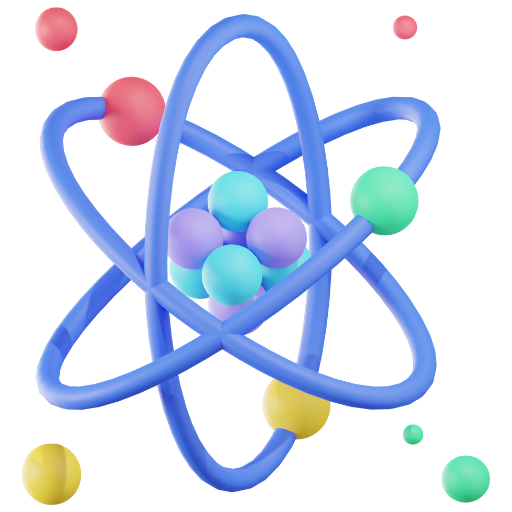This article delves into tried-and-true methods for improving performance in the workplace and in the classroom, including making a conducive study space, getting enough sleep, eating well, and using study techniques like the Pomodoro technique. Drawing on first-hand knowledge, we offer actionable advice on how to stay focused, make the most of your environment, and eat well to reach your full productivity potential.
Table of Contents
- Overcoming Learning Challenges with Science
- Boost Your Learning and Work Performance with Proven Scientific Methods
- Can Music Really Boost Your Study Sessions?
- The Role of Sleep and Nutrition in Performance
Overcoming Learning Challenges with Science

Science equips pupils with the knowledge and skills necessary to comprehend difficult ideas and overcome obstacles to learning. Essential abilities for overcoming learning problems are encouraged in science, unlike other topics, through hands-on experiences, critical thinking, and problem-solving. Students have an easier time understanding complex concepts when they participate in experiments that demonstrate theories in action.
Practical Applications Make Learning Fun
Science provides pupils with a visual way to understand otherwise abstract concepts. Experimenting with anything from chemical processes to physical rules can help with comprehension and memorization. Since science incorporates all three senses—sight, sound, and movement—this works wonderfully for students who have trouble focusing on one aspect of the material.
Exploring New Horizons with Confidence
As students engage in scientific inquiry, they build resilience. Each failed experiment teaches them that mistakes are part of learning. Over time, this fosters a growth mindset, where students feel more empowered to tackle academic challenges, knowing they can find solutions through perseverance.
Science not only teaches facts but equips learners with a powerful method to face challenges, both in and out of the classroom.
Boost Your Learning and Work Performance with Proven Scientific Methods

Your capacity to learn and perform well at work is greatly influenced by your surroundings. To maximize your chances of success, use scientific methods to enhance learning and work performance in your life.
Making a well-structured, distraction-free study space is one of the most effective methods. It is generally more difficult to concentrate and remember things when the environment is busy or full of noise. Improving focus and memory is as simple as creating a quiet, well-lit study space free of interruptions.
Academic and occupational performance are both enhanced by scientific study methods such as the Pomodoro technique, which divides work into smaller, more manageable chunks. This technique promotes sustained focus and reduces burnout by having participants work for 25 minutes and then taking a 5-minute break.
Healthy habits are an integral part of an all-encompassing strategy for environmental optimization. Memory and cognitive function are both improved by maintaining a regular sleep schedule, eating healthy food, and exercising for brief intervals. Proper diet nourishes the brain and body, which in turn enhances learning, and sleep is critical for storing information, according to research.
You can greatly enhance your learning and work performance by integrating these effective study strategies with an optimum environment. Check this wiki page to learn how to improve your performance.
Can Music Really Boost Your Study Sessions?

Researchers have long been interested in the possibility that listening to music while studying can enhance concentration and productivity. Evidence from research suggests that, when combined with appropriate scientific methods to enhance learning and work performance, music can be a powerful tool; however, personal views may vary.
If you’re looking to set the mood and block out noise, try some instrumental or classical music in the background. A more conducive environment for concentrated study is the result of this. Furthermore, music has the power to affect mood, which in turn can increase drive and decrease anxiety while tackling challenging academic assignments.
Even more effective for increasing output in the classroom is the “Pomodoro technique” when paired with calming music. With the music playing in the background to keep the rhythm going, the technique encourages prolonged concentration by dividing study periods into focused intervals.
Having said that, not every musical style has the same positive effects. When dealing with complicated topics, listening to songs with lyrics could hinder memory retention and understanding. The opposite is true for music; studies have demonstrated that listening to classical or lo-fi beats improves cognitive performance and decreases mental tiredness.
In the end, listening to music as you study can help you concentrate better and make studying more fun and productive.
The Role of Sleep and Nutrition in Performance

Knowing how sleep and diet affect performance is critical for academic and professional success. Scientific ways to increase learning and work performance can help us make better lifestyle choices, which will unlock our full potential.
Sleep: The Foundation of Cognitive Function
The ability to retain information and think clearly depends on getting a good night’s sleep. The brain consolidates and integrates the information it has received throughout the day when we sleep. Academic and occupational performance can suffer as a result of a lack of sleep-related declines in attention, focus, and problem-solving ability. To maximize your cognitive capacities, aim for 7-9 hours of quality sleep per night and develop a consistent sleep routine.
Nutrition: Fueling the Brain
Our mental acuity and stamina are directly impacted by the food we eat. The nutrients needed to promote brain function can be obtained through a well-rounded diet that is rich in whole foods, including fruits, vegetables, lean meats, and healthy fats. Omega-3 fatty acids and antioxidants are two of the nutrients that have been associated to better mental performance.
Combining Sleep and Nutrition for Optimal Performance
To get the best outcomes, make sure to get enough sleep and eat well. Here are a few approaches:
- Establish a Nightly Sleep Schedule: Establish a regular time to go to bed and wake up.
- Limit Screen Time Before Bed: Reduce your exposure to blue light by limiting your screen time before bed. This will help you get a better night’s sleep.
- Choose Nutrient-Dense Foods: Include brain-healthy foods like almonds, leafy greens, and fatty fish in your diet.
This video also explains how sleep affects your brain. Your learning capacities and overall effectiveness on the job can be greatly improved by making these routines a part of your everyday routine.












1 thought on “Boost Your Learning and Work Performance with Proven Scientific Methods”